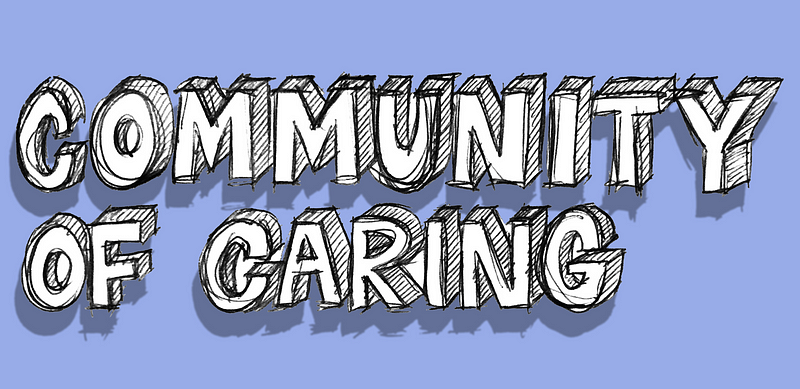
llustration by Heidi Wong ’19
In response to the passing of Isaiah Carpenter-Winch ’19, President Wippman and Dean Martinez sent out a campus-wide email announcing the creation of The Community of Care Initiative. The intended goal is to “address mental health issues and foster a stronger sense of wholeness and connectedness” within the Hamilton community. At Monday’s Student Assembly meeting, Martinez explained that this program will be comprised of six initiatives that are intended to be “immediate [and] high impact.”
The first initiative will be a community dinner program that enables students, faculty, and staff to interact in intimate groups of 12. These will occur in faculty members’ homes or residence halls. By applying for a micro-grant any community member can elect to host a dinner.Martinez and Wippman hope that students will make an effort to invite classmates they are not familiar with so as to increase community interconnectivity.
Initiative number two will be the creation of a video campaign in Burke Library that enables students to record testimonies of how they hope to improve the community. These can include “commitment to actions such as checking in on other classmates and friends,” says Martinez.
Another initiative will be the creation of a Wall of Commitment. This will be a moving whiteboard with questions and student responses. It is intended to create a campus-wide dialogue about community engagement.
The fourth will be a poster campaign created in conjunction with the Counseling Center and Dean of Student Support Lorna Chase. It is intended to disseminate information on mental health and wellness so as to educate the student body.
There will also be program called THRIVE that has been modeled at Johns Hopkins University. According to Martinez, THRIVE “uses theories of positive psychology to let students engage with positive behavior.” It “works with students on how to be happy.” This will be an elective but will not count towards course credit. It is intended to meet eight times a semester.
Finally, Hamilton will take into consideration recommendations from the JED Foundation –a non-profit organization that advocates for emotional and mental health, in addition to working to prevent suicide in institutions of higher-level education– on to how to improve the campus’s mental and emotional health systems, protocols, and policies.
At the Student Assembly meeting, elected representatives Elizabeth Groubert ’21, Jake Engelman ’19, Marquis Palmer ’18, and others asked whether or not it would be plausible to include some form of mental health education during freshman orientation.
Dean Martinez suggested that this was a possibility but indicated that she “would like to see what is already in place and expand from there.” In response to Jake Engelman’s proposal to institute mandatory mental health training for the entire student body, Martinez exhibited reluctance. “I get concerned when we say things are mandatory,” she expressed by way of explanation. Lizza Tran ’18 suggested the training of professors in how to engage with their students on the issue of student deaths and suicides. President Wippman suggested that this is being discussed.
Ian Lunn and Gianni Hill raised the issue of visibility and asked how the Community of Caring program will address those students who are not cognizant of their mental health and are therefore unwilling or unable to ask for help. Martinez and Wippman promised that the programming would take that into consideration.
With new programming comes new responsibility. These programs will not work without active student engagement. As Wippman and Martinez write in their email, “Now is a time when we can each pause to ask what we, as individuals, can do to support and enhance our community while at the same time address[ing] as an institution the societal issues that affect the lives of our students.”
